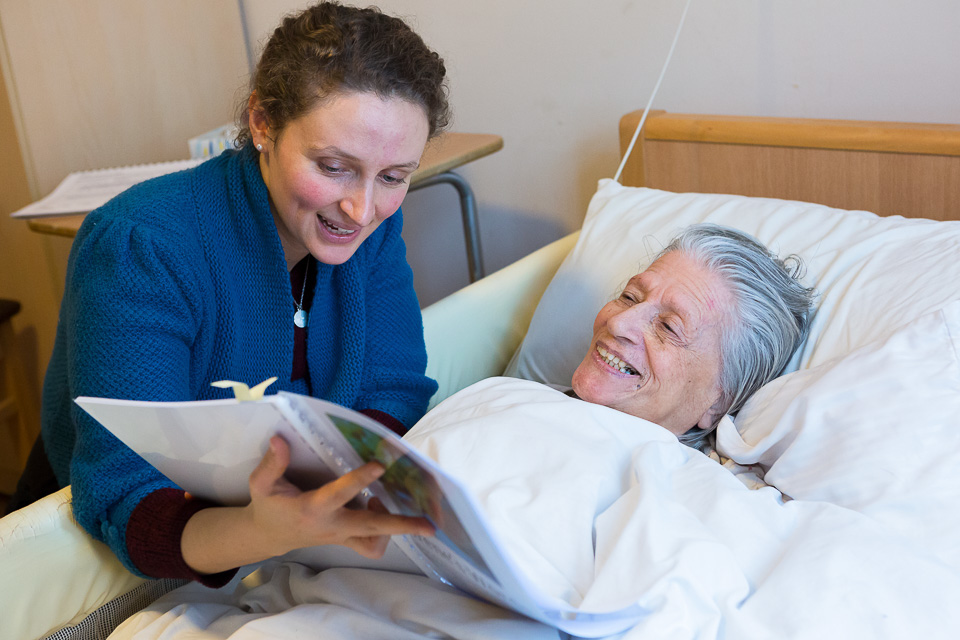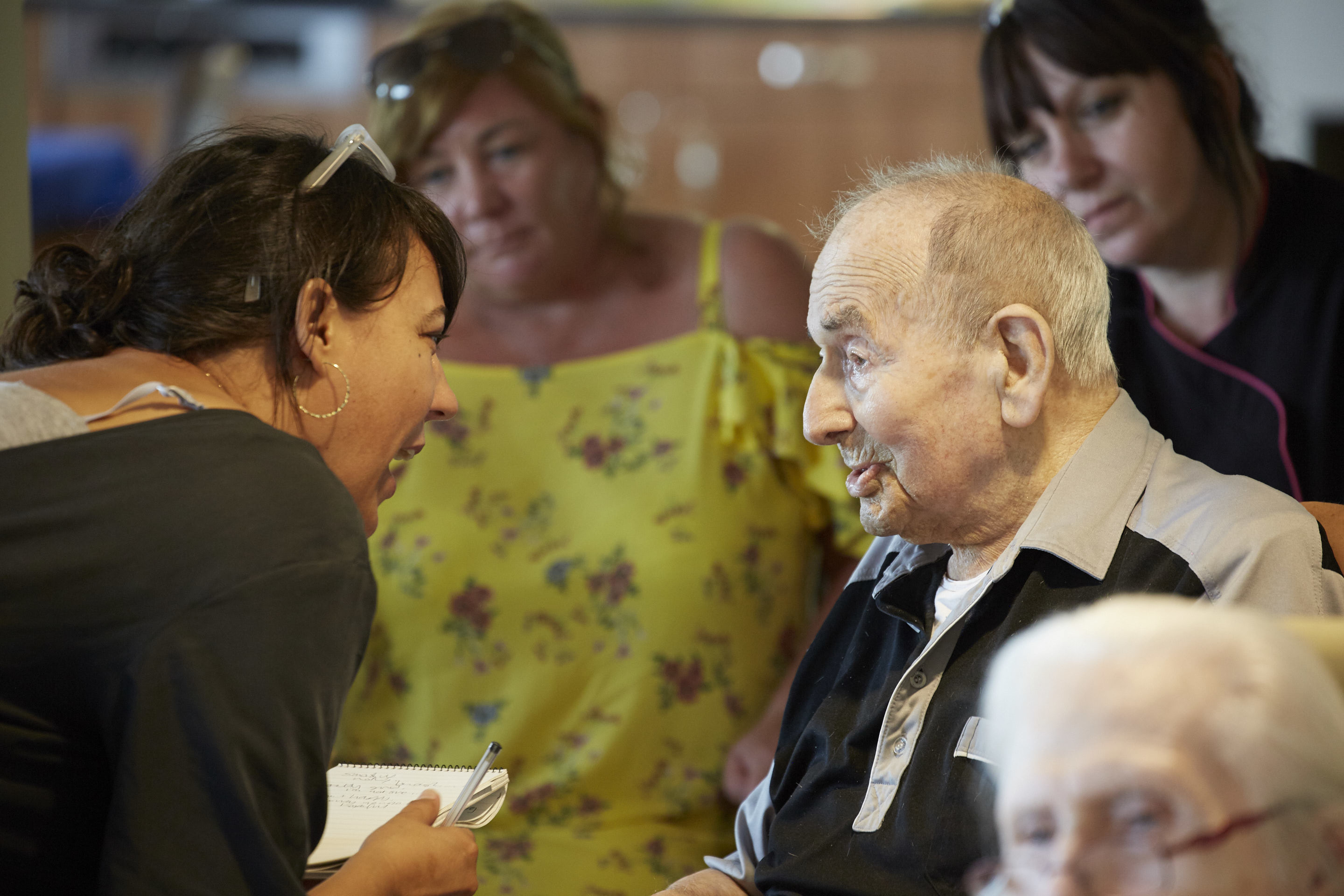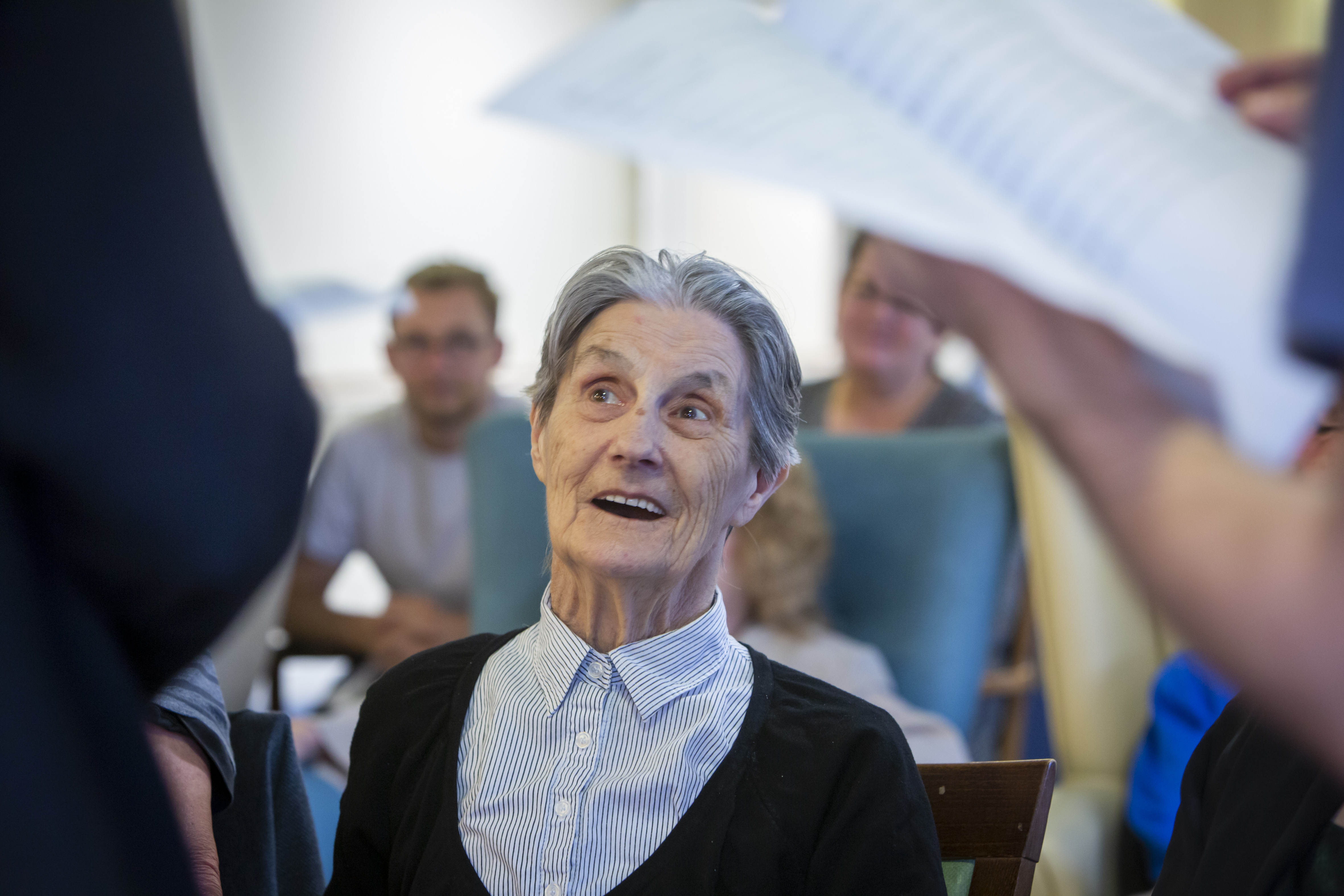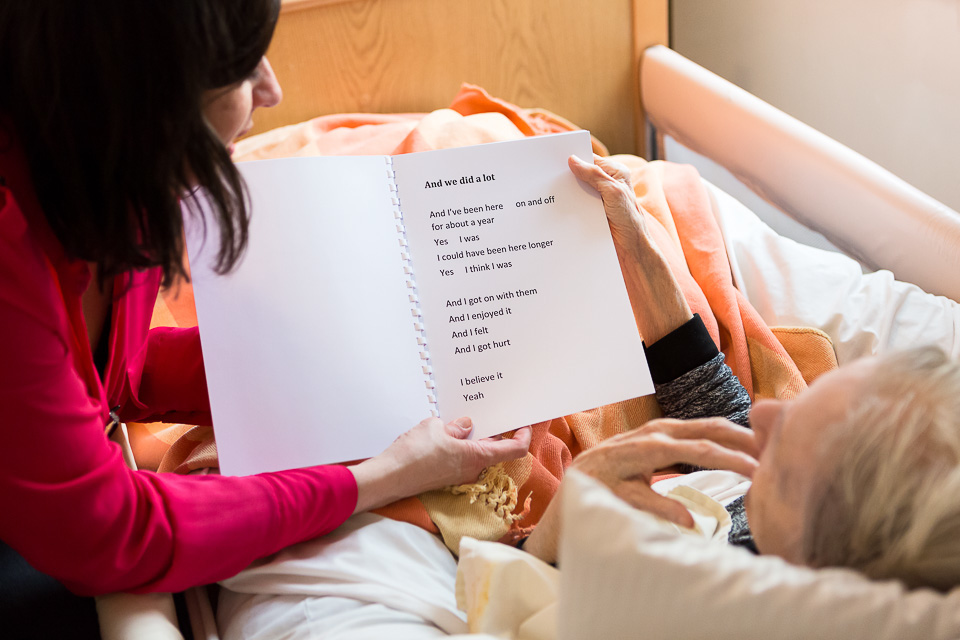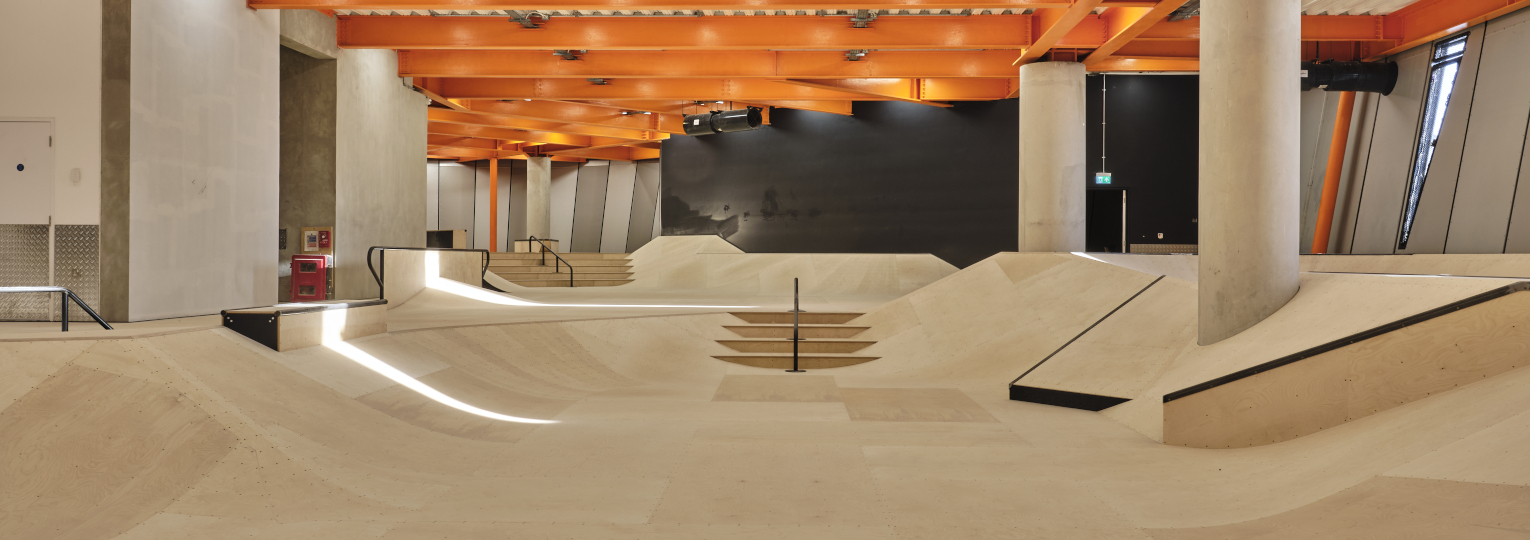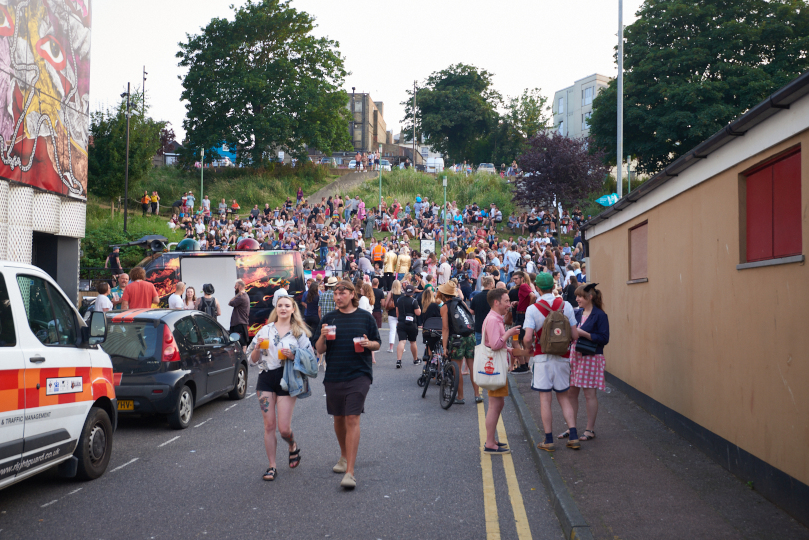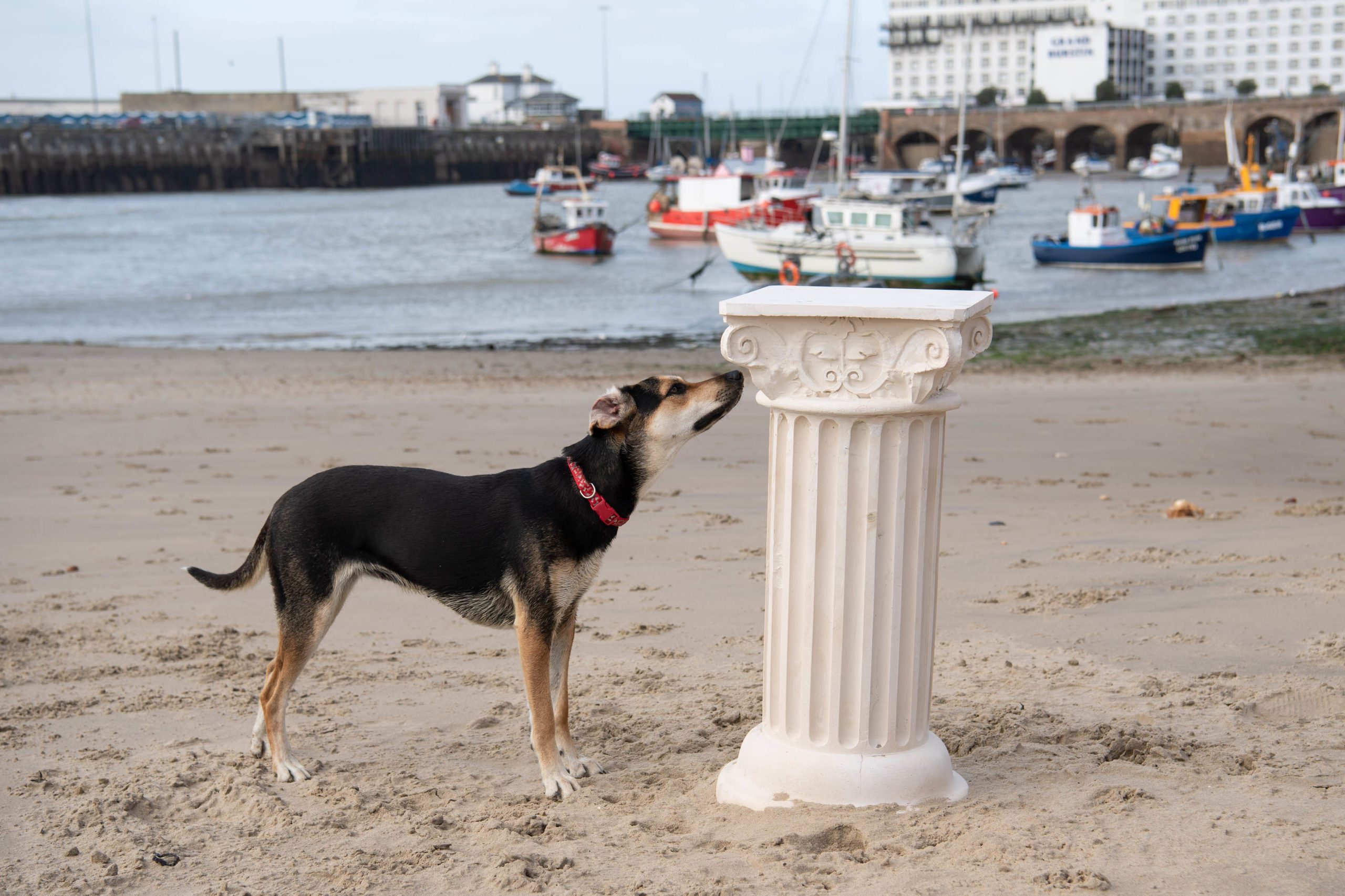Arts & Culture
Susanna Howard – Living Words Folkestone
Susanna Howard is officially happy. She was nominated for this year’s Independent newspaper’s Happy List of 2019. It’s a celebratory list of 50 people, put forward by the public, ‘whose kindness, ingenuity and bravery have made Britain a better place to live.’
Susanna is an actor and writer by trade and the founding director of Living Words. This is a charity that works with people with advanced dementia. They note a person’s sounds and words to create personal books. These then inform performances, publications and music to highlight a person’s value to our society. Folkelife decided that a morning coffee was in order when meeting Susanna at the Living Words office in The Glassworks, Folkestone.
Happy person
“I have no idea who nominated me! But I do know that a lot has changed in dementia awareness since I started working in this area 13 years ago. I can remember people saying to me that working with those with advanced dementia was pointless. The work we do, which is our mainstay, is with those with advance dementia who are more often isolated individuals. Those who people think don’t make sense or even don’t say anything at all.”
understanding people’s value in our lives
“I’ll have relatives ring me at the start of a project, when we’re doing the ethical consents and so on, and say ‘I think you are wasting your time.’ I’ll thank them for letting me know and say we’ll keep in touch. Later on they will contact me saying they’ve been to see their relative and seen their book. They’ll have read it with them and see their relative is responding to it. Importantly, they recognise this book reflects them as a person. So the world is changing. If we’ve been a part of helping that change, to help people realise that everyone has a value, and those with late-stage dementia still have a value in all our lives, then that makes me happy. That’s my passion!”
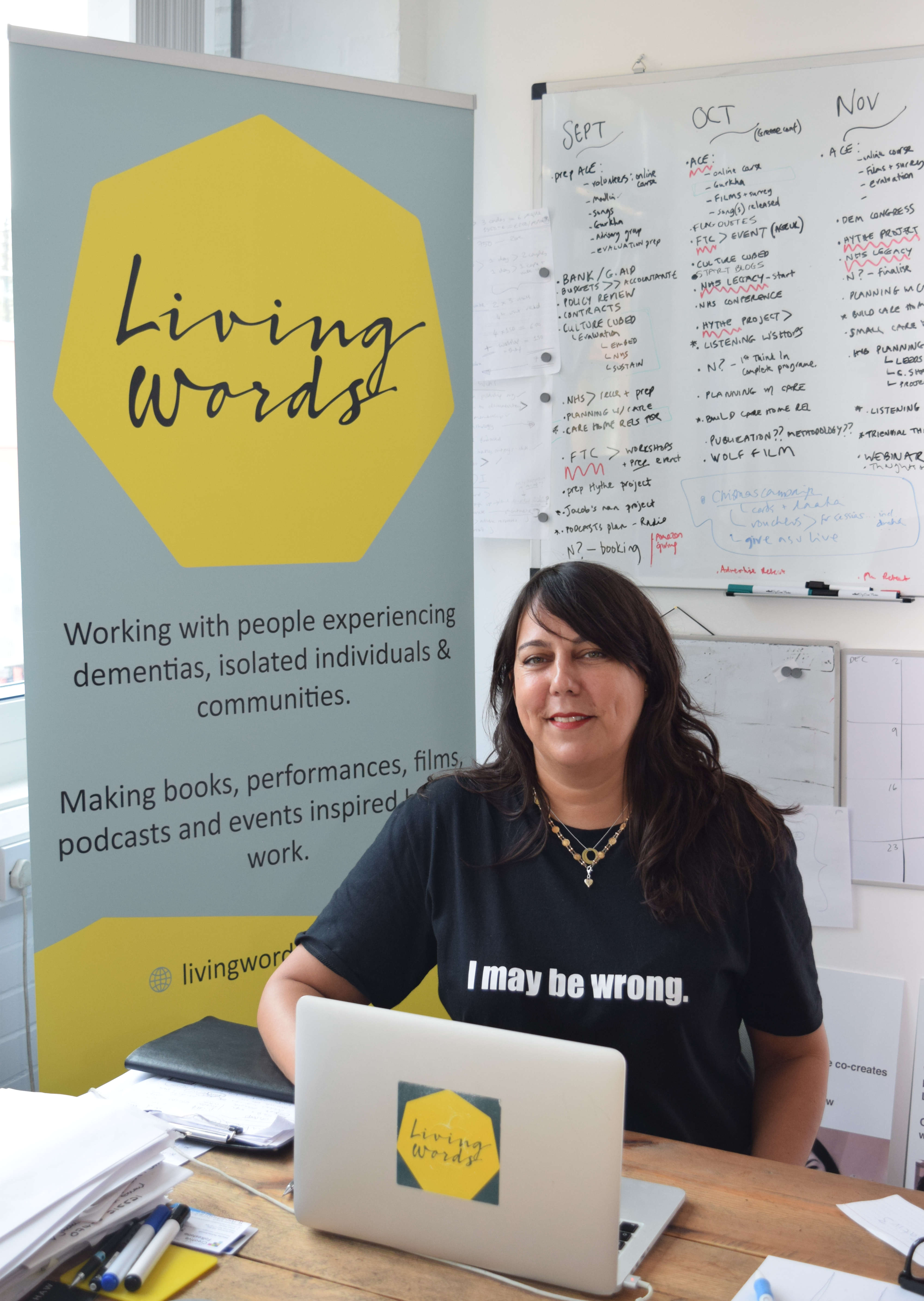
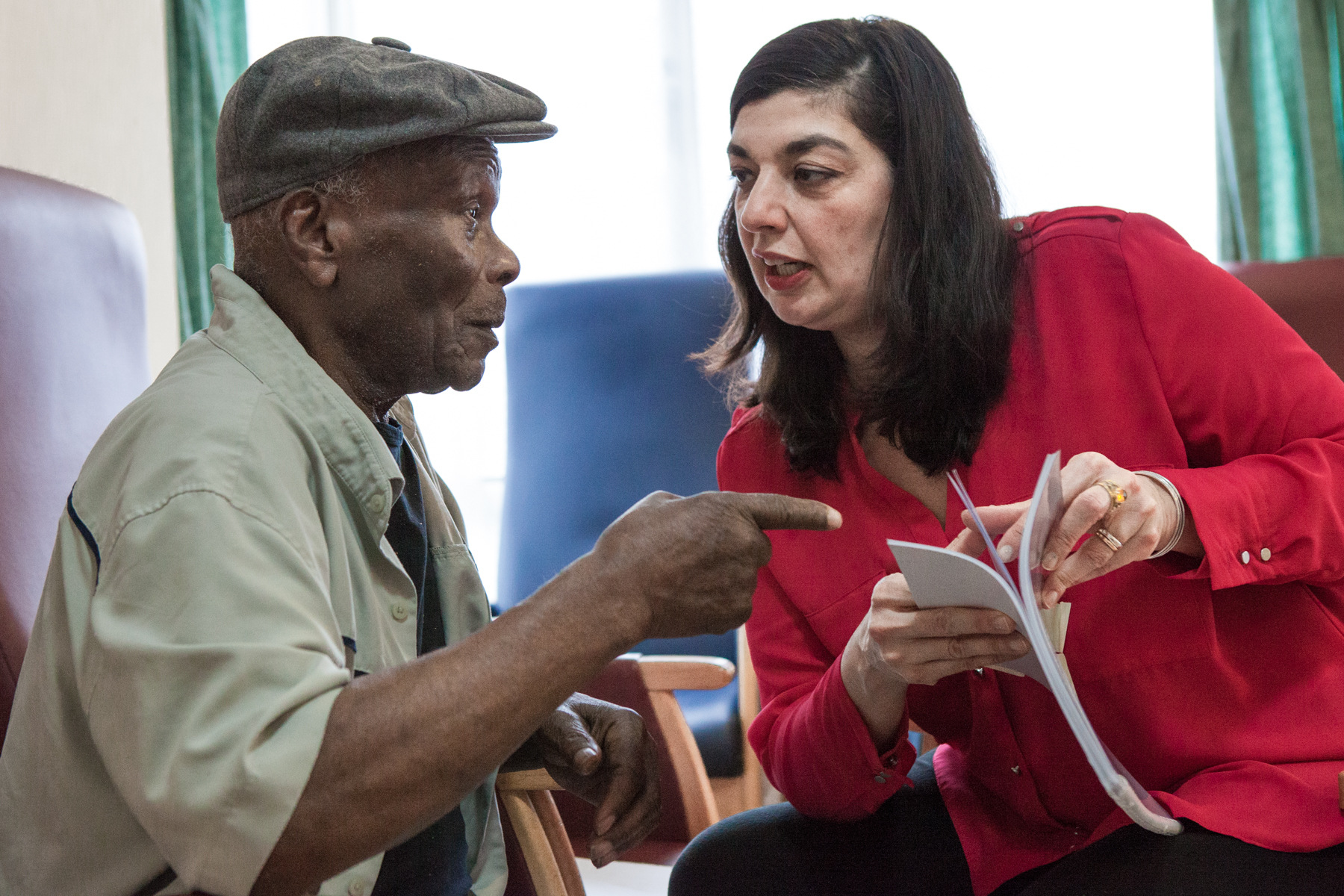
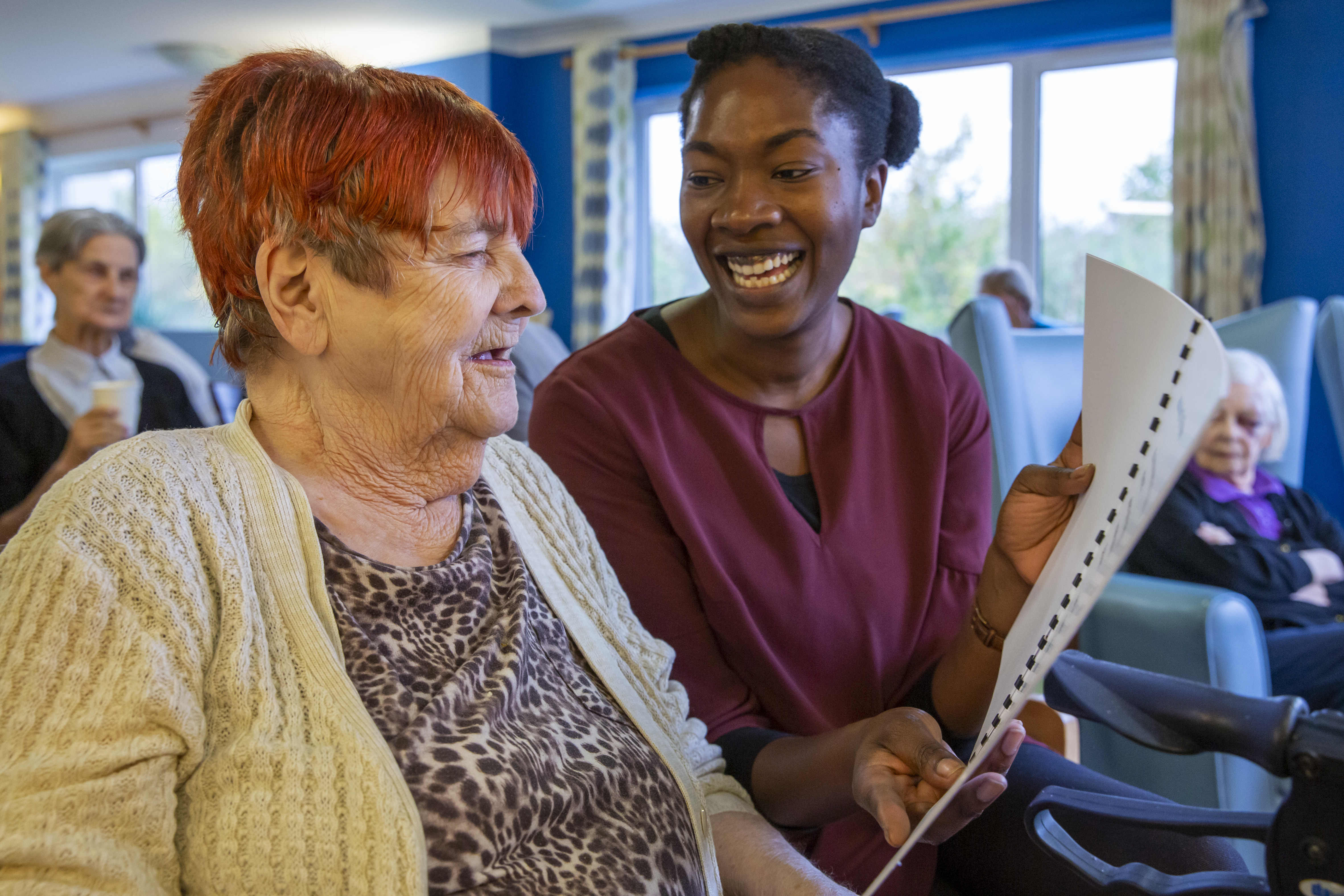
taking the taboo out of dementia
“I saw a band the other night and the drummer just started talking, apropos nothing, about Alzheimer’s. That wouldn’t have happened ten years ago. The taboo has definitely been taken away and therefore people, like myself, who’ve been slogging away at this for a long time have had a lot of influence.
“There are two sides to our work: the intimate side, and the public side. We’ve built up this Listen Out Loud methodology over the years. Taking people’s words (with all the appropriate consent) we create their book of words. We also create public performances, publications and films which means we can reach out in a really big way.
“We’ve just had the National Youth Choirs of Great Britain release some songs from a project at the The Wellcome Trust 2 years ago as part of BBC Proms. Some people that I’d worked with, who sadly are no longer with us, had their words set to music and played live on Radio 3. Their relatives were able to come to that, which was great. It’s this sort of example that can transform people’s awareness to the value of people in late-stage dementia.”
working as artists
“When you work, through the arts, with someone on a one-to-one basis, you are building a picture or connection with that person. It’s about equity. Being artists, when we are with someone we are totally ourselves. Our skill set is such that we’re not trying to teach, or guide that person to any particular place. We don’t know where our journey is going to go. Sitting with someone, we validate and affirm what they say. The ‘Listen Out Loud’ process is very nuanced, though it looks so simple.”
relationships come first
“The relationship comes first. We connect with that person and some want to communicate straight away with sounding words. Others might want to go for a walk together and see what this relationship is all about. The sounds or words come later. I will write down everything you say to me, and we’re off! It can be really slow, it can be really quick. In any case it’s taking what that person is saying and putting it back to them.
“We love words and every word uttered is important. We are able to be with people in dark spaces, as well as light ones. The work can go very deep. And through hearing their words back, even if the person is existing within a one minute to one-minute time frame, a person expresses feeling heard and their expression being of value. Even when it is around something others may find upsetting. It can be a relief.”
words have impact
“Relatives and care home staff can make a judgement about the impact our work has on that person. After all, they know them a lot better than I do! But if there’s no connection, then it’s not going to happen. I can give you examples of people who’ve been bed-ridden when we’ve started working with them, and over time have been able to get strength back in themselves, a feeling that there is a sense of themselves. It’s not a cure, but we all know how it feels to have a purpose, be heard and be of value – with or without dementia.
“There’s a man in a photo who is sharing his book at an event we had. Our funder thought he was a relative when they met him. Four months before he’d been in bed for the previous six months. Here, in the photo, he’s walking around, showing people his book with his words. That’s not to say that he was cognisant like you or I. But it gave him a complete sense of ‘I’m heard, I’m valued, this is who I am.’ “
translating the feeling
“One participant in a recent project was talking about something and was really engaging. He had three different points in history from the references he was making. One of the things may or may not have happened to him, but what he was communicating was very clear. Because of the relationship we had, we were able to pause and ask the audience – ‘Is everyone enjoying the way this story has been told?’ Yes. ‘Are you enjoying sharing it?’ Yes. ‘Are you all feeling you can understand what the top meaning over this is?’ Yes. ‘So does it matter that it’s not all correct, or this isn’t right or that isn’t right?’ No, because the feeling and the meaning is there.”
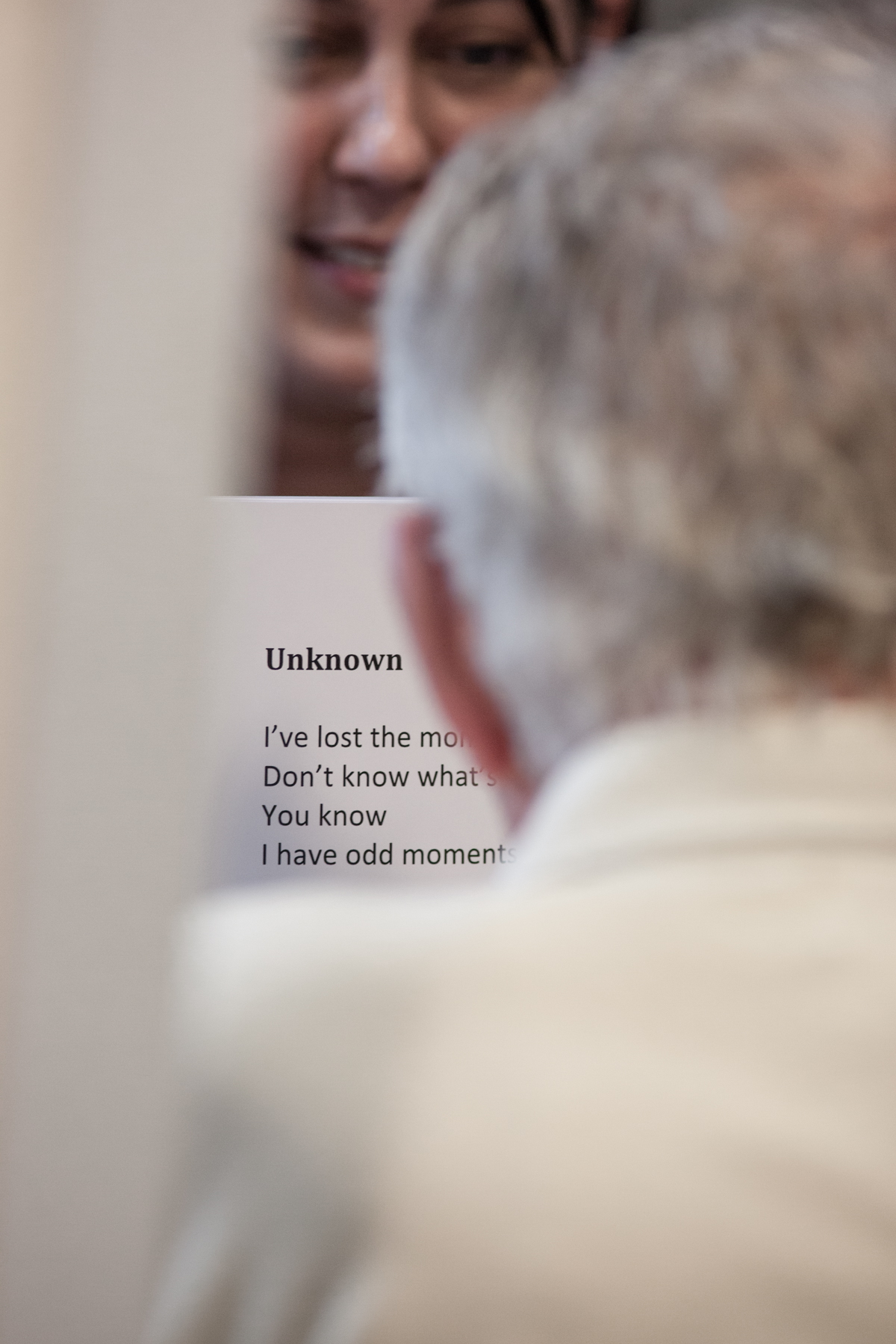
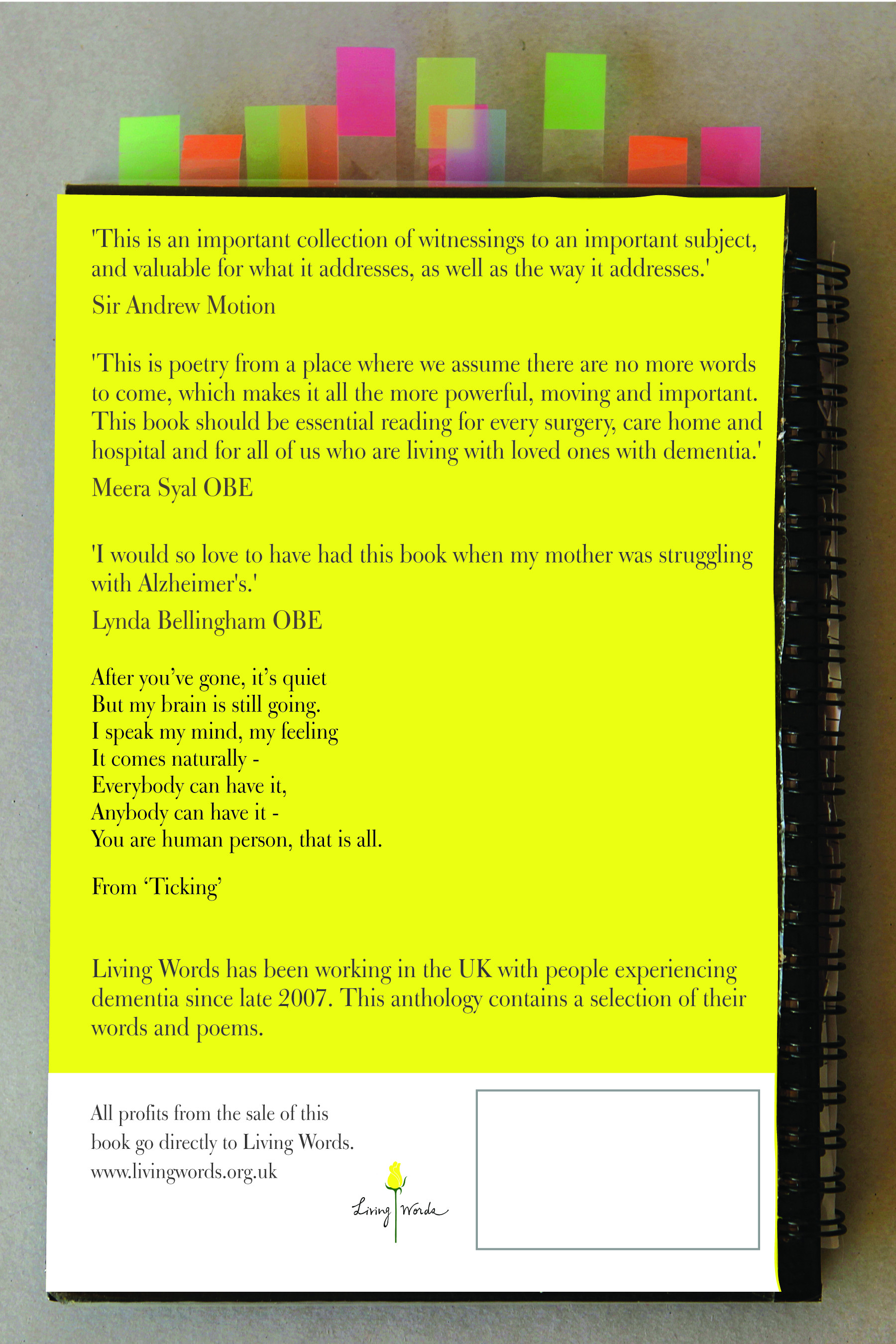
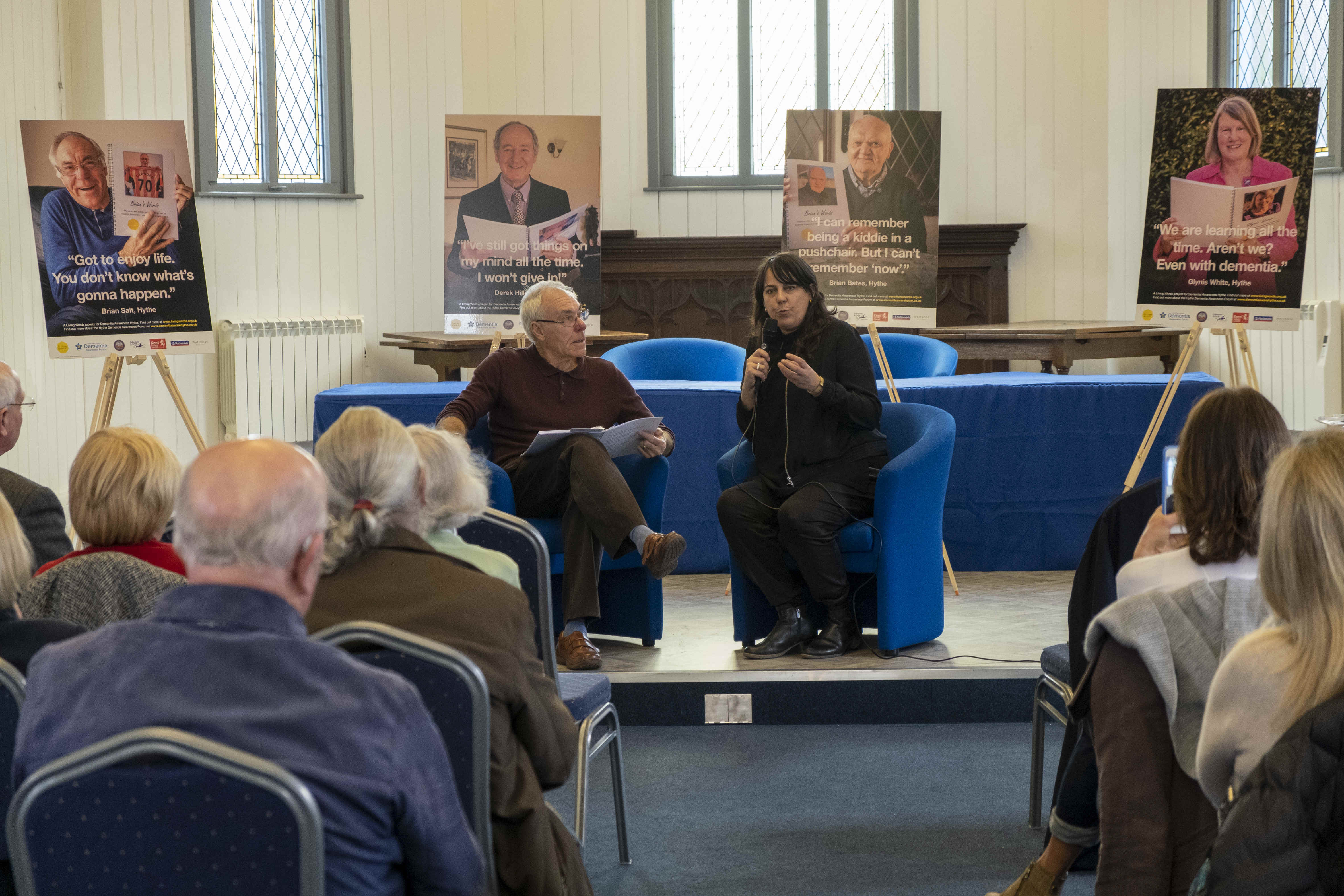
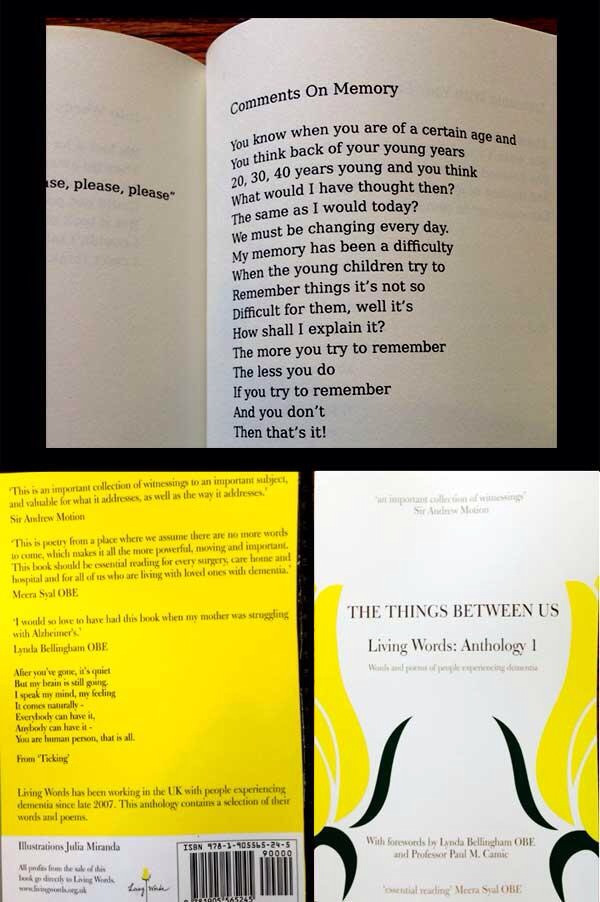
Dealing with dementia is not easy
“That is not to say that dealing with dementia is easy by any means. I have deep respect for and we support the carers and relatives of those with dementias. This isn’t a walk in the park. We want to support people to grow together in this experience, through the arts.
“As artists, we’re in a different position than a medical professional. Our work is unmedicalised. We can go into different situations, different environments and have space to prioritise the human connection. We don’t have the enormous task list of most care and nursing home staff. Moving into a different space helps connect with that person. Let’s set aside the overworked, pressurised atmosphere of a care home or hospital.”
Living warriors
“You can take our approach to anything. We’ve completed a project called Living Warriors where we worked with a different group of people. 3 groups of people met in Folkestone Library to share stories of the moments in which they chose not to end their lives. They felt different on the outside, but there were great similarities between them in the words they used and the feelings they had. We’ve published a book of their work which becomes their legacy, and again reiterates their value.
“We’ve got legacy funding to continue this work with women who self-harm, adults with Autism and independent living. Kent County Council have seen this, as well as the NHS, and over the past 3 years we’ve really been seen on an international stage with what we do. I think that’s helped the change in attitudes towards those with dementias. The Arts Council put us forward to the British Council for best practice in the arts in dementia in the UK, which meant we led workshops and presented key-note speech at the National Theatre of Taiwan in Taipei. We have also shared our work at Alan Alda’s Centre for Communicating Science in New York this year.”
Folkestone helps you grow
“Being based in Folkestone helps you grow. I’ve developed, with Diane Dever from the Folkestone Fringe, and Allegra Galvin and Cheryl Pearce from Creative Folkestone, Normal? Festival of the Brain. We’ve developed it from the way we work here at Living Words which is non-judgemental self-expression. It’s a fun and exciting festival to curate, bringing arts and science together to explore the brain.
“Looking at what I have here – this office, and the fact that I live so nearby, I wouldn’t have this in London, and I wouldn’t have these connections or opportunities, it’s an inspiring place to live and work. I love it!”
Funny old
Living Words’ song FUNNY OLD by Folkestonian John Offen with Susanna Howard, and set to music by another Folkestone resident Marit Rokeburg, sung by London Contemporary Voices. The lyrics are:
Funny old world, innit
I can’t isolate myself
I just feel like a star / cloud
Within the walls of solitude
You understand?
The unity
Funny old world, innit
I must go and leave my thoughts
In the clouds
Within the universe.
Must go where I know not
Scooby, Scooby Doo
Photo credits: Andy Aitchison and Manuel Vason
